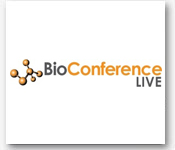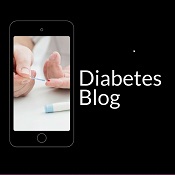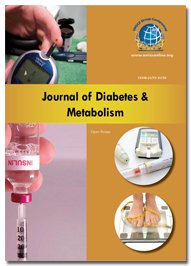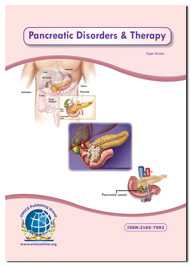Theme:
Diabetes Meet 2018
 Welcome Message
Welcome Message
Diabetes Meet 2018

Dear Friends and Colleagues, Scientists,
On behalf of the Conference Series conferences. It is my worthy Pleasure to great Physician, Nurse, Allied Health Practitioner, Scientist & Scholars from Australia and Across the world, academicians, young researchers, Businessman. It is a great pleasure and an honour to extend you a warm invitation to attend the Global Experts Meeting On Diabetes, Hypertension &Metabolic Syndrome, to be held from July 30-31 in Melbourne, Australia.
The theme of the conference is “Investigating the Challenges in Diabetes, Hypertension & Metabolic syndrome: which mainly focuses on signs and symptoms, causes, pathophysiology, etiology, diagnosis nursing care, prevention and management of diabetes mellitus, Metabolic Syndrome and Hypertension. The theme of the Conference will highlight the need for alliance and associations from a wide range of professional backgrounds.
The Conference will provide a forum for you to energize your knowledge and explore the innovations in clinical diabetes. The conference will endeavour to extend stacks of webbing opportunities, giving time to come across and communicate with the scientists and researchers, friends and colleagues as well as promoters and pioneers.
Melbourne is the world's most liveable city and discover its combination of world-class dining, art galleries, home grown fashion and packed sports
I wish All the Best For all Dignitaries Doctors, Nurses, Allied Health Workers, Businessman to Enjoy Their Trip In this Conference.
We look forward to seeing you in Melbourne, Australia.
Prof(Dr)Premanidhi Panda
M.D(MED), MRCP, FRCP
BRAND AMBASSADOR TO IMA-2017

Conferenceseries llc LTD is pleased to announce the "Global Experts Meeting on Diabetes, Hypertension, Metabolic Syndrome" scheduled during July 30-31, 2018 in Melbourne, Australia with a theme, “Investigating the Challenges in Diabetes, Hypertension & Metabolic syndrome”.
Conferenceseries llc LTD Organises 1000 International Conferences every year across USA, Europe & Asia with support from 1000 more scientific societies and Publishes 500+ Open access journals which contains over 50000 eminent personalities, 50,000 reputed scientists as editorial board members and 5 million readers.
Diabetes is a chronic disease that occurs either when the pancreas does not produce enough insulin or when the body cannot effectively use the insulin it produces. Insulin is a hormone that regulates blood sugar. The metabolic syndrome is a cluster of the most dangerous heart attack risk factors: diabetes and prediabetes, abdominal obesity, high cholesterol and high blood pressure. In 2014, 8.5% of adults aged 18 years and older had diabetes. In 2015, diabetes was the direct cause of 1.6 million deaths and in 2012 high blood glucose was the cause of another 2.2 million deaths.
Hypertension also known as high blood pressure ,is a long-term medical condition in which the blood pressure in the arteries is persistently elevated.Hypertension is a condition that’s often present in people with type 2 diabetes. It’s unknown why there’s such a significant correlation between the two diseases. It’s believed that obesity, a diet high in fat and sodium, and inactivity contribute to both conditions.
Why to attend???
Medical doctors, patients and health care providers consider the prevention of Diabetes & metabolic syndrome as an essential tool to improve the general health status of the population. The proportions of people suffering from the Diabetes, Hypertension & Metabolic Syndrome are expected to increase in future according a recent statistical survey. Realizing this imperative, Conference Series Ltd is set to organize "Global Experts Meeting on Diabetes, Hypertension, Metabolic Syndrome" for the upcoming year with a view to enhance research and promote awareness aiming in developing solutions for the challenges encountered.
Target Audience:
- Endocrinology & Diabetes students, Scientists
- Endocrinology & Diabetes Researchers
- Endocrinology & Diabetes Faculty
- Medical Colleges
- Endocrinology & Diabetes Associations and Societies
- Business Entrepreneurs
- Manufacturing Medical Devices Companies
- Hypertension Societies and Associations
- Hypertension or Cardiology and related departments
- Hypertension institutes
- Training Institutes
- Research students
- Pharma Companies
It is our pleasure to invite all the participants from all over the world to Diabetes Meeting entitled "Global Experts Meeting on Diabetes, Hypertension, Metabolic Syndrome" on Diabetes, Hypertension & Metabolic Syndrome which is scheduled at Melbourne, Australia.
The main theme of our conference is “Investigating the Challenges in Diabetes, Hypertension & Metabolic syndrome”. which covers wide range of critically important sessions.
The live format of the conference will be accredited with CME and CPD Credits.
Track 1: Diabetes and Its Treatment
Diabetes treatment has developed in novel years; the sheer number of new technologies entering into the type 1 diabetes marketplace is also growing at a remarkable rate. From the patient’s perspective, this can lead to a sense of optimism. Technologies that today are growing commonplace e.g. insulin pumps, rapid HbA1c monitoring, etc. come under new therapeutic mechanisms of diabetes. The major advances in type 1 diabetes care have come from technology rather than biology. At the same time, not all new technologies succeed regardless of their purported promise.
Related Diabetes Conference | Diabetes Meet 2018 | Metabolic Syndrome Conference| Hypertension Conference | Diabetes Conferences
Related Conferences:
Track 2: Diabetes Complications
Several type of complications are seen due to uncontrollable diabetes. Complications of diabetes mellitus are acute and chronic. Acute complications include hypoglycemia and hyperglycemia, diabetic coma and nonketotic hyperosmolar coma. There are several chronic complications and its occur due to a mix of microangiopathy, macrovascular disease and immune dysfunction in the form of autoimmune disease or poor immune response, most of which are difficult to manage. The most common serious complications from diabetes are coronary artery disease (CAD) and stroke, kidney failure, blindness, and foot disease. All diabetes complications can require specialized medical treatment depending on their severity.
By reducing HbA1c and keeping blood pressure and cholesterol levels well controlled, people with diabetes can reduce their risk of diabetic complications.
Related Diabetes Conference | Diabetes Meet 2018 | Metabolic Syndrome Conference| Hypertension Conference | Diabetes Conferences
Related Conferences:
Track 3: Diabetic Eye Disease
Diabetic eye disease refers to a group of eye problems that people with diabetes may face as a complication of diabetes. People with diabetes are at risk for diabetic retinopathy, cataract and glaucoma.
Diabetic retinopathy is the most common diabetic eye disease and a leading cause of blindness in American adults. It is caused by changes in the blood vessels of the retina.
In some people with diabetic retinopathy, blood vessels may swell and leak fluid. In other people, abnormal new blood vessels grow on the surface of the retina. The retina is the light-sensitive tissue at the back of the eye. A healthy retina is necessary for good vision.
If you have diabetic retinopathy, at first you may not notice changes to your vision. But over time, diabetic retinopathy can get worse and cause vision loss. Diabetic retinopathy usually affects both eyes.
Related Diabetes Conference | Diabetes Meet 2018 | Metabolic Syndrome Conference| Hypertension Conference | Diabetes Conferences
Related Conferences:
Track 4: Diabetic kidney disease
With diabetes, the small blood vessels in the body are injured. When the blood vessels in the kidneys are injured, your kidneys cannot clean your blood properly. Your body will retain more water and salt than it should, which can result in weight gain and ankle swelling. You may have protein in your urine. Also, waste materials will build up in your blood.
Related Diabetes Conference | Diabetes Meet 2018 | Metabolic Syndrome Conference| Hypertension Conference | Diabetes Conferences
Related Conferences: Global Experts Meeting On Diabetes, Hypertension & Metabolic Syndrome July 30-31, 2018 Melbourne, Australia; Global Meeting on Diabetes and Endocrinology July 25-26, 2018 Kuala Lumpur, Malaysia; International Conference on Diabetes and its Complications May 28-29, 2018 Osaka, Japan; 24th International Conference on Herbal and Alternative Therapies for Diabetes August 17-18, 2018 Singapore; 25th Global Summit on Human Metabolic Health- Diabetes, Obesity, & Metabolism September 6-8, 2018 Dubai, UAE
Track 5: Clinical Diabetes and Diagnostic Approaches
Diabetes mellitus is a group of metabolic diseases characterized by hyperglycemia resulting from defects in insulin secretion, insulin action, or both. The chronic hyperglycemia of diabetes is associated with long-term damage, dysfunction, and failure of various organs, especially the eyes, kidneys, nerves, heart, and blood vessels.
Diabetic kidney disease is recognized as the leading cause of excess mortality in the population with type 1 diabetes. The prevailing theory is that excess calories are processed via the mitochondria resulting in accumulation of superoxide radicals via the electron transfer chain. Novel Paradigms in Diabetic Complications, Diabetes, Pre-diabetes represents an elevation of plasma glucose above the normal range but below that of clinical diabetes. Prediabetes and Metabolic Syndrome, To better study both the pathogenesis and potential therapeutic agents, appropriate animal models of type 2 diabetes (T2D) mellitus are needed for Clinical trials on animal models, sodium glucose co-transport inhibitors act as a novel strategy for the treatment of diabetes mellitus
Type 2 diabetes is by far the most common type of diabetes in adults (>90 percent) and is characterized by hyperglycemia and variable degrees of insulin deficiency and resistance in Clinical presentation and diagnosis of diabetes mellitus in adults.
Related Diabetes Conference | Diabetes Meet 2018 | Metabolic Syndrome Conference| Hypertension Conference | Diabetes Conferences
Related Conferences:Global Experts Meeting On Diabetes, Hypertension & Metabolic Syndrome July 30-31, 2018 Melbourne, Australia; Global Meeting on Diabetes and Endocrinology July 25-26, 2018 Kuala Lumpur, Malaysia; International Conference on Diabetes and its Complications May 28-29, 2018 Osaka, Japan; 24th International Conference on Herbal and Alternative Therapies for Diabetes August 17-18, 2018 Singapore; 25th Global Summit on Human Metabolic Health- Diabetes, Obesity, & Metabolism September 6-8, 2018 Dubai, UAE
Track 6 : Diabetes Management
People with type 1 or type 2 diabetes are diagnosed with more of some types of cancer -- and are more likely to die from cancer -- than people without diabetes, a new Australian study shows.
The brain is a hugely important organ which helps to be aware of, understand and interact with our surroundings and others.
As with many of our organs, the brain is susceptible to damage as a result of diabetes & brain
Diabetes foot care & management: Foot ulcers and amputations are a major cause of morbidity, disability, as well as emotional and physical costs for people with diabetes. Early recognition and management of independent risk factors for ulcers and amputations can prevent or delay the onset of adverse outcomes.
In Cardiac Resynchronization Therapy Arrhythmias are irregular heart rhythms and can be caused by a variety of reasons, including age, heart damage, medications and genetics. In heart failure patients CRT, or biventricular pacing, is used to help improve the heart’s rhythm and the symptoms associated with the arrhythmia.
Implantable Cardioverter Defibrillator An ICD is a battery-powered device placed under the skin that keeps track of your heart rate. Thin wires connect the ICD to your heart. If an abnormal heart rhythm is detected the device will deliver an electric shock to restore a normal heartbeat if your heart is beating chaotically and much too fast. It is important to understand that the decision to have angioplasty or coronary artery bypass graft (CABG) surgery to treat coronary artery disease (CAD) depends on many different things. A healthful eating pattern, regular physical activity, and often pharmacotherapy are key components of diabetes management. It is best to get vitamins and minerals from the foods you eat. In fact, research has not been able to prove that dietary or herbal supplements (including omega-3 supplements, cinnamon, and other herbs) help to manage diabetes.
Related Diabetes Conference | Diabetes Meet 2018 | Metabolic Syndrome Conference| Hypertension Conference | Diabetes Conferences
Related Conferences: Global Experts Meeting On Diabetes, Hypertension & Metabolic Syndrome July 30-31, 2018 Melbourne, Australia; Global Meeting on Diabetes and Endocrinology July 25-26, 2018 Kuala Lumpur, Malaysia; International Conference on Diabetes and its Complications May 28-29, 2018 Osaka, Japan; 24th International Conference on Herbal and Alternative Therapies for Diabetes August 17-18, 2018 Singapore; 25th Global Summit on Human Metabolic Health- Diabetes, Obesity, & Metabolism September 6-8, 2018 Dubai, UAE
Track 7 : Advanced Technologies & Treatments for Diabetes
Blood glucose (blood sugar) monitoring is the main tool you have to check your diabetes control. This check tells you your blood glucose level at any one time. The artificial pancreas bridges the gap between two pieces of diabetes technology that already exist: the insulin pump and the continuous glucose monitor (CGM). Relatively, a large percentage of world population is affected by diabetes mellitus, out of which approximately 5-10% with type 1 diabetes while the remaining 90% with type 2. Insulin administration is essential for type 1 patients while it is required at later stage by the patients of type 2. Current insulin delivery systems are available as transdermal injections which may be considered as invasive. Several non-invasive approaches for insulin delivery are being pursued by pharmaceutical companies to reduce the pain, and hypoglycemic incidences associated with injections in order to improve patient compliance.
Related Diabetes Conference | Diabetes Meet 2018 | Metabolic Syndrome Conference| Hypertension Conference | Diabetes Conferences
Related Conferences: Global Experts Meeting On Diabetes, Hypertension & Metabolic Syndrome July 30-31, 2018 Melbourne, Australia; Global Meeting on Diabetes and Endocrinology July 25-26, 2018 Kuala Lumpur, Malaysia; International Conference on Diabetes and its Complications May 28-29, 2018 Osaka, Japan; 24th International Conference on Herbal and Alternative Therapies for Diabetes August 17-18, 2018 Singapore; 25th Global Summit on Human Metabolic Health- Diabetes, Obesity, & Metabolism September 6-8, 2018 Dubai, UAE
Track 8 : Genetics of Diabetes
Several factors have to come together for a person to develop type 2 diabetes. Elements like nutrition and exercise are extremely important. However, type 2 diabetes also has a strong genetic component. Diabetes constitutes a major public health problem. Although substantial progress has been made in defining the genetic risk for specific subtypes of diabetes
The burden of diabetes is much higher for racial/ethnic minorities than for whites. Minorities have a higher prevalence of diabetes than whites, and some minorities have higher rates of diabetes-related complications and death. Research results help in understanding these disparities and ways to reduce them.
Diabetes, the sixth leading cause of death in the United States, is a chronic disease characterized by persistent hyperglycemia (high blood glucose levels). Significant advances have been made in recent years in relation to the pathogenesis of T2DM. This has significantly improved our knowledge of one of the most serious health threats in the world, allowing identification of genes and pathways involved in the development and progression of the disease. It has recently become possible to acquire molecular and genetic level information from an individual.
Related Diabetes Conference | Diabetes Meet 2018 | Metabolic Syndrome Conference| Hypertension Conference | Diabetes Conferences
Related Conferences: Global Experts Meeting On Diabetes, Hypertension & Metabolic Syndrome July 30-31, 2018 Melbourne, Australia; Global Meeting on Diabetes and Endocrinology July 25-26, 2018 Kuala Lumpur, Malaysia; International Conference on Diabetes and its Complications May 28-29, 2018 Osaka, Japan; 24th International Conference on Herbal and Alternative Therapies for Diabetes August 17-18, 2018 Singapore; 25th Global Summit on Human Metabolic Health- Diabetes, Obesity, & Metabolism September 6-8, 2018 Dubai, UAE
Track 9: Diabetes Oral Medications/Anti-Diabetic Medications
Drugs used in diabetes treat diabetes mellitus by lowering glucose levels in the blood. With the exceptions of Insulin, exenatide, liraglutide and pramlintide, all are administered orally and are thus also called oral hypoglycemic agents or oral antihyperglycemic agents. There are different classes of anti-diabetic drugs, and their selection depends on the nature of the diabetes, age and situation of the person, as well as other factors.
Diabetes mellitus type 1 is a disease caused by the lack of insulin. Insulin must be used in Type I, which must be injected.
Diabetes mellitus type 2 is a disease of insulin resistance by cells. Type 2 diabetes mellitus is the most common type of diabetes. Treatments include (1) agents that increase the amount of insulin secreted by the pancreas, (2) agents that increase the sensitivity of target organs to insulin, and (3) agents that decrease the rate at which glucose is absorbed from the gastrointestinal tract.
Several groups of drugs, mostly given by mouth, are effective in Type II, often in combination. Insulin sensitizers address the core problem in Type II diabetes—insulin resistance.
Thiazolidinediones (TZDs), also known as "glitazones," bind to PPARγ, a type of nuclear regulatory protein involved in transcription of genes regulating glucose and fat metabolism.
Secretagogues are drugs that increase insulin output from the pancreas. Meglitinides help the pancreas produce insulin and are often called "short-acting secretagogues".
Alpha-glucosidase inhibitors are "diabetes pills" but not technically hypoglycemic agents because they do not have a direct effect on insulin secretion or sensitivity. Dipeptidyl peptidase-4 (DPP-4) inhibitors increase blood concentration of the incretin GLP-1 by inhibiting its degradation by dipeptidyl peptidase-4.
Related Diabetes Conference | Diabetes Meet 2018 | Metabolic Syndrome Conference| Hypertension Conference | Diabetes Conferences
Related Conferences: Global Experts Meeting On Diabetes, Hypertension & Metabolic Syndrome July 30-31, 2018 Melbourne, Australia; Global Meeting on Diabetes and Endocrinology July 25-26, 2018 Kuala Lumpur, Malaysia; International Conference on Diabetes and its Complications May 28-29, 2018 Osaka, Japan; 24th International Conference on Herbal and Alternative Therapies for Diabetes August 17-18, 2018 Singapore; 25th Global Summit on Human Metabolic Health- Diabetes, Obesity, & Metabolism September 6-8, 2018 Dubai, UAE
Track 10 : Emerging Focus in Diabetes Research
Dyslipidemia is one of the major risk factors for cardiovascular disease in diabetes mellitus. The characteristic features of diabetic dyslipidemia are a high plasma triglyceride concentration, low HDL cholesterol concentration and increased concentration of small dense LDL-cholesterol particles.
There are many risk factors for type 2 diabetes such as age, race, pregnancy, stress, certain medications, genetics or family history, high cholesterol and obesity. However, the single best predictor of type 2 diabetes is overweight or obesity. Almost 90% of people living with type 2 diabetes are overweight or have obesity. People who are overweight or have obesity have added pressure on their body's ability to use insulin to properly control blood sugar levels, and are therefore more likely to develop diabetes. The number of diabetes cases among American adults increased by a third during the 1990s, and additional increases are expected. This rapid increase in the occurrence of diabetes is mostly attributed to the growing prevalence of obesity in the United States.
The Bioinformatics/Computational Biology Service branch will provide basic capabilities to the Joslin Diabetes Center to analyze a wide range of high-throughput data. Housed on-site at the Joslin, the group and associated resources will be available to Joslin investigators and fellows who are either planning high-throughput experiments or need analysis of multi-scale data.
We prospectively followed 51,552 Finnish men and women 25–74 years of age without a history of Parkinson's disease at baseline. History of diabetes and other study parameters were determined at baseline using standardized measurements. Ascertainment of the Parkinson's disease status was based on the nationwide Social Insurance Institution's drug register data. Hazard ratios of incident Parkinson's disease associated with the history of type 2 diabetes were estimated. The entire spectrum of diabesity, including all of its complications–diabetes, elevated blood sugar, blood pressure, and cholesterol–are simply downstream symptoms that result from problems with diet, lifestyle, and environmental toxins interacting with our unique genetic susceptibilities. Bariatric surgery may be an option for adults with severe obesity. Body mass index (BMI), a measure of height in relation to weight, is used to define levels of obesity. Clinically severe obesity is a BMI > 40 or a BMI > 35 with a serious health problem linked to obesity. Such health problems could be type 2 diabetes, heart disease, or severe sleep apnea (when breathing stops for short periods during sleep).
Related Diabetes Conference | Diabetes Meet 2018 | Metabolic Syndrome Conference| Hypertension Conference | Diabetes Conferences
Related Conferences: Global Experts Meeting On Diabetes, Hypertension & Metabolic Syndrome July 30-31, 2018 Melbourne, Australia; Global Meeting on Diabetes and Endocrinology July 25-26, 2018 Kuala Lumpur, Malaysia; International Conference on Diabetes and its Complications May 28-29, 2018 Osaka, Japan; 24th International Conference on Herbal and Alternative Therapies for Diabetes August 17-18, 2018 Singapore; 25th Global Summit on Human Metabolic Health- Diabetes, Obesity, & Metabolism September 6-8, 2018 Dubai, UAE
Track 11 : Endocrinology: Disorders & Treatment
Endocrinology is a specialty of medicine; some would say a sub-specialty of internal medicine, which deals with the diagnosis and treatment of diseases related to hormones. Endocrinology covers such human functions as the coordination of metabolism, respiration, reproduction, sensory perception, and movement. Endocrinology also focuses on the endocrine glands and tissues that secrete hormones. The human endocrine system consists of a number of glands. These glands produce and secrete hormones which control the body's metabolism, growth, sexual development and function. When the hormones leave the glands they enter the bloodstream and are transported to organs and tissues in every part of the body.
Related Diabetes Conference | Diabetes Meet 2018 | Metabolic Syndrome Conference| Hypertension Conference | Diabetes Conferences
Related Conferences: Global Experts Meeting On Diabetes, Hypertension & Metabolic Syndrome July 30-31, 2018 Melbourne, Australia; Global Meeting on Diabetes and Endocrinology July 25-26, 2018 Kuala Lumpur, Malaysia; International Conference on Diabetes and its Complications May 28-29, 2018 Osaka, Japan; 24th International Conference on Herbal and Alternative Therapies for Diabetes August 17-18, 2018 Singapore; 25th Global Summit on Human Metabolic Health- Diabetes, Obesity, & Metabolism September 6-8, 2018 Dubai, UAE
Track 12 : Endocrine Complications
Endocrine disorders are often quite complex, involving a mixed picture of hyposecretion and hypersecretion because of the feedback mechanisms involved in the endocrine system. For example, most forms of hyperthyroidism are associated with an excess of thyroid hormone and a low level of thyroid stimulating hormone. Patients with multi-transfused thalassemia major may develop severe endocrine complications due to iron overload. The anterior pituitary is particularly sensitive to iron overload which disrupts hormonal secretion resulting in hypogonadism, short stature , acquired hypothyroidism and hypoparathyroidism. Glucose intolerance and diabetes mellitus are also common in thalassaemic patients. Delayed or absent puberty and hypogonadism may result in fertility problems which affect enormously the life of thalassemics. Glucose intolerance in adolescence and diabetes mellitus later in life are also frequent complications mainly due to iron overload, chronic liver disease and genetic predisposition. Primary hypothyroidism and hypoparathyroidsm usually appear in the second decade of life; are related to iron overload and may be reversible at an early stage by intensive chelation. Osteopenia and osteoporosis due to a complicated pathogenesis represent prominent causes of morbidity in young adults of both genders with thalassaemia. Early recognition and prevention of the endocrine complications, by early and regular chelation therapy, is mandatory for the improvement of the quality of life and psychological outcome of these patients.
Related Diabetes Conference | Diabetes Meet 2018 | Metabolic Syndrome Conference| Hypertension Conference | Diabetes Conferences
Related Conferences:Global Experts Meeting On Diabetes, Hypertension & Metabolic Syndrome July 30-31, 2018 Melbourne, Australia; Global Meeting on Diabetes and Endocrinology July 25-26, 2018 Kuala Lumpur, Malaysia; International Conference on Diabetes and its Complications May 28-29, 2018 Osaka, Japan; 24th International Conference on Herbal and Alternative Therapies for Diabetes August 17-18, 2018 Singapore; 25th Global Summit on Human Metabolic Health- Diabetes, Obesity, & Metabolism September 6-8, 2018 Dubai, UAE
Track 13 : Endocrinology Research and Development
Endocrinology is a perplexing investigation of the different hormones and their action and disorder in the body. Endocrine Glands are organs that make hormones. These are substances that control exercises in the body and effectively affect the digestion system, multiplication, nourishment retention and use, development and improvement and so on. Hormones likewise control the way a living being reacts to their environment and help by giving sufficient vitality to different capacities. Diabetes is brought about by a diminished creation of insulin or by a diminished capacity to utilize insulin. Insulin, the hormone delivered by the beta cells in the pancreas, permits (glucose) cells to have the capacity to utilize glucose.
Related Diabetes Conference | Diabetes Meet 2018 | Metabolic Syndrome Conference| Hypertension Conference | Diabetes Conferences
Related Conferences: Global Experts Meeting On Diabetes, Hypertension & Metabolic Syndrome July 30-31, 2018 Melbourne, Australia; Global Meeting on Diabetes and Endocrinology July 25-26, 2018 Kuala Lumpur, Malaysia; International Conference on Diabetes and its Complications May 28-29, 2018 Osaka, Japan; 24th International Conference on Herbal and Alternative Therapies for Diabetes August 17-18, 2018 Singapore; 25th Global Summit on Human Metabolic Health- Diabetes, Obesity, & Metabolism September 6-8, 2018 Dubai, UAE
Track 14: Endocrinology and Metabolic Syndrome
Endocrinology is a branch of biology and medicine dealing with the endocrine system, its diseases and its specific secretions known as hormones, growth promotion and malignancy. Behavioral endocrinology is the study of hormonal processes and neuroendocrine systems that influence or regulate behaviour. Endocrinology includes the wide area that not only affects our endocrine system, but also has effects on skin which shows indirectly involvement of dermatology.
Metabolic syndrome is a medical disorder results in formation of cluster of conditions that includes, increased blood pressure, high blood sugar, excess body fat around the waist, and abnormal cholesterol or triglyceride levels that occur together, increasing your risk of heart disease, stroke and diabetes. Metabolic syndrome is closely linked to overweight or obesity and inactivity and also linked to a condition called insulin resistance. Genetic factors influence each individual component of the syndrome, and the syndrome itself. Metabolic syndrome is also known as syndrome X, insulin resistance syndrome, or dysmetabolic syndrome.
Related Diabetes Conference | Diabetes Meet 2018 | Metabolic Syndrome Conference| Hypertension Conference | Diabetes Conferences
Related Conferences:Global Experts Meeting On Diabetes, Hypertension & Metabolic Syndrome July 30-31, 2018 Melbourne, Australia; Global Meeting on Diabetes and Endocrinology July 25-26, 2018 Kuala Lumpur, Malaysia; International Conference on Diabetes and its Complications May 28-29, 2018 Osaka, Japan; 24th International Conference on Herbal and Alternative Therapies for Diabetes August 17-18, 2018 Singapore; 25th Global Summit on Human Metabolic Health- Diabetes, Obesity, & Metabolism September 6-8, 2018 Dubai, UAE
Track 15 : Cardiovascular Disorders
Cardiovascular disease refers to more than one disease of the circulatory system including the heart and blood vessels, whether the blood vessels are affecting the lungs, the brain, kidneys or other parts of the body. Coronary artery disease, stroke, and peripheral artery disease involve atherosclerosis. This may be caused by high blood pressure, smoking, diabetes, lack of exercise, obesity, high blood cholesterol, poor diet, and excessive alcohol consumption, among others.
Polycystic ovary syndrome (PCOS) is associated with higher prevalence of cardiovascular risk factors but the relative prevalence of cardiovascular disease in women with PCOS has not previously been reported. High blood pressure results in 13% of CVD deaths, while tobacco results in 9%, diabetes 6%, lack of exercise 6% and obesity 5%. The effect of the use of aspirin in people who are otherwise healthy is of unclear benefit. Treatment of those who have CVD improves outcomes. Cardiovascular diseases are the leading cause of death globally. Coronary artery disease and stroke account for 80% of CVD deaths in males and 75% of CVD deaths in females. Most cardiovascular disease affects older adults.
Related Diabetes Conference | Diabetes Meet 2018 | Metabolic Syndrome Conference| Hypertension Conference | Diabetes Conferences
Related Conferences: Global Experts Meeting On Diabetes, Hypertension & Metabolic Syndrome July 30-31, 2018 Melbourne, Australia; Global Meeting on Diabetes and Endocrinology July 25-26, 2018 Kuala Lumpur, Malaysia; International Conference on Diabetes and its Complications May 28-29, 2018 Osaka, Japan; 24th International Conference on Herbal and Alternative Therapies for Diabetes August 17-18, 2018 Singapore; 25th Global Summit on Human Metabolic Health- Diabetes, Obesity, & Metabolism September 6-8, 2018 Dubai, UAE
Track 16 : Endocrine and Metabolic Syndrome Disorders
Endocrine glands are a group of glands in the body which secrete hormones. The endocrine system influences how your heart beats, how your bones and tissues grow, even your ability to make a baby. It plays a vital role in whether or not you develop diabetes, thyroid disease, growth disorders, sexual dysfunction, and a host of other hormone-related disorders. Endocrine disorders are typically grouped into two categories:
· Endocrine disease that results when a gland produces too much or too little of an endocrine hormone, called a hormonal imbalance.
· Endocrine disease due to the development of lesions (such as nodules or tumours) in the endocrine system, which may or may not affect on hormone levels.
Being overweight or obese predisposes an individual to many medical problems including diabetes, high blood pressure, heart disease, stroke, depression and some types of cancer. Endocrinologists work closely with dieticians, exercise physiologists, behavioural therapists and bariatric surgeons as part of the Comprehensive Weight Loss Centre to help patients achieve realistic weight-loss goals and improve health.
Related Diabetes Conference | Diabetes Meet 2018 | Metabolic Syndrome Conference| Hypertension Conference | Diabetes Conferences
Related Conferences: Global Experts Meeting On Diabetes, Hypertension & Metabolic Syndrome July 30-31, 2018 Melbourne, Australia; Global Meeting on Diabetes and Endocrinology July 25-26, 2018 Kuala Lumpur, Malaysia; International Conference on Diabetes and its Complications May 28-29, 2018 Osaka, Japan; 24th International Conference on Herbal and Alternative Therapies for Diabetes August 17-18, 2018 Singapore; 25th Global Summit on Human Metabolic Health- Diabetes, Obesity, & Metabolism September 6-8, 2018 Dubai, UAE
Track 17 : Metabolic Responses and Nutrition
Nutrition & Metabolism focuses on the integration of nutrition, exercise physiology, clinical investigations, and molecular and cellular biochemistry of metabolism. The areas of interest of Nutrition & Metabolism encompass studies in obesity, diabetes, lipidemias, metabolic syndrome and exercise physiology that have an underlying basis in metabolism. Metabolic effects of dietary protein are complex. In persons with type 2 diabetes, protein ingestion results in little or no increase in plasma glucose concentrations but a stimulation of insulin and glucagon secretion. The nutritional requirements of a neonate are significantly greater than those of an adult because not only are there requirements for substrate intake to fulfil basic metabolic needs, but there are metabolic needs to maintain rapid and continued growth and development.
Related Diabetes Conference | Diabetes Meet 2018 | Metabolic Syndrome Conference| Hypertension Conference | Diabetes Conferences
Related Conferences: Global Experts Meeting On Diabetes, Hypertension & Metabolic Syndrome July 30-31, 2018 Melbourne, Australia; Global Meeting on Diabetes and Endocrinology July 25-26, 2018 Kuala Lumpur, Malaysia; International Conference on Diabetes and its Complications May 28-29, 2018 Osaka, Japan; 24th International Conference on Herbal and Alternative Therapies for Diabetes August 17-18, 2018 Singapore; 25th Global Summit on Human Metabolic Health- Diabetes, Obesity, & Metabolism September 6-8, 2018 Dubai, UAE
Track 18 : Treatment & Management Of Metabolic Syndrome
The initial management of metabolic syndrome involves lifestyle modifications, including changes in diet and exercise habits. [80] Indeed, evidence exists to support the notion that the diet, exercise, and pharmacologic interventions may inhibit the progression of metabolic syndrome to diabetes mellitus.
Related Diabetes Conference | Diabetes Meet 2018 | Metabolic Syndrome Conference| Hypertension Conference | Diabetes Conferences
Related Conferences: Global Experts Meeting On Diabetes, Hypertension & Metabolic Syndrome July 30-31, 2018 Melbourne, Australia; Global Meeting on Diabetes and Endocrinology July 25-26, 2018 Kuala Lumpur, Malaysia; International Conference on Diabetes and its Complications May 28-29, 2018 Osaka, Japan; 24th International Conference on Herbal and Alternative Therapies for Diabetes August 17-18, 2018 Singapore; 25th Global Summit on Human Metabolic Health- Diabetes, Obesity, & Metabolism September 6-8, 2018 Dubai, UAE
Track 19 : Hypertension
Hypertension, additionally called as high vital sign or blood vessel cardiovascular disease could be a chronic medical condition during which the blood pressure within the arteries is elevated. This session mainly covers the different types of hypertension and their assessment. Isolated systolic hypertension, resistant hypertension are all recognized hypertension sorts with specific diagnostic criteria. A sphygmomanometer, is a device used to measure blood pressure, composed of an inflatable cuff to collapse and then release the artery under the cuff in a controlled manner, and a mercury.
Globally, the overall prevalence of raised blood pressure in adults aged 25 and over was around 40% in 2010. Because of population growth and ageing, the number of people with uncontrolled hypertension ranges from 600 million in 1980 to nearly 1 billion in 2010.The national Million Hearts initiative endeavors to increase the number of persons whose hypertension is under control, by 10 million, as part of its goal to prevent 1 million heart attacks and strokes by the year of 2018.
Related Diabetes Conference | Diabetes Meet 2018 | Metabolic Syndrome Conference| Hypertension Conference | Diabetes Conferences
Related Conferences: Global Experts Meeting On Diabetes, Hypertension & Metabolic Syndrome July 30-31, 2018 Melbourne, Australia; Global Meeting on Diabetes and Endocrinology July 25-26, 2018 Kuala Lumpur, Malaysia; International Conference on Diabetes and its Complications May 28-29, 2018 Osaka, Japan; 24th International Conference on Herbal and Alternative Therapies for Diabetes August 17-18, 2018 Singapore; 25th Global Summit on Human Metabolic Health- Diabetes, Obesity, & Metabolism September 6-8, 2018 Dubai, UAE
Track 20 : Pulmonary Hypertension
Pulmonary hypertension (PH) is a rise of blood pressure within the artery, vein, or respiratory organ capillaries, resulting in shortness of breath, dizziness, fainting, leg swelling and different symptoms. This type of hypertension that affects the arteries in the lungs and the right side of your heart, then it begins when tiny arteries in your lungs, called pulmonary arteries, and capillaries become narrowed, blocked or destroyed. This makes it harder for blood to flow through your lungs, and raises pressure within your lungs' arteries.
As the pressure builds, your heart's lower right chamber must work harder to pump blood through your lungs, eventually causing your cardiac muscle to weaken and eventually fail. Pulmonary hypertension is a serious illness that becomes progressively worse and is sometimes fatal. Pulmonary hypertension worsens over time and is life-threatening because the pressure in a patient's pulmonary arteries rises to dangerously high levels, putting a strain on the heart. There is no cure for pulmonary hypertension, but several medications are available to treat symptoms. The various complications to related to pulmonary hypertension are congestive heart failure, blood clotting, liver disease, Lupus, Rheumatoid Arthritis, chronic bronchitis, HIV Associated Pulmonary Hypertension, and PH in Association with Sickle Cell Disease.
Related Diabetes Conference | Diabetes Meet 2018 | Metabolic Syndrome Conference| Hypertension Conference | Diabetes Conferences
Related Conferences: Global Experts Meeting On Diabetes, Hypertension & Metabolic Syndrome July 30-31, 2018 Melbourne, Australia; Global Meeting on Diabetes and Endocrinology July 25-26, 2018 Kuala Lumpur, Malaysia; International Conference on Diabetes and its Complications May 28-29, 2018 Osaka, Japan; 24th International Conference on Herbal and Alternative Therapies for Diabetes August 17-18, 2018 Singapore; 25th Global Summit on Human Metabolic Health- Diabetes, Obesity, & Metabolism September 6-8, 2018 Dubai, UAE
Track 21: Gestational Hypertension
Gestational hypertension or pregnancy-induced hypertension (PIH) is the development of new hypertension in a pregnant woman after 20 weeks’ gestation without the presence of protein in the urine or other signs of preeclampsia and eclampsia. Gestational hypertension is usually defined as having a blood pressure higher than 140/90 measured on two separate occasions, more than 6 hours apart, without the presence of protein in the urine and diagnosed after 20 weeks of gestation. There is no specific treatment, but is monitored closely to rapidly identify pre-eclampsia and its life-threatening complications.
Drug treatment options are limited, as many antihypertensive may negatively affect the fetus. Methyldopa, hydralazine, and labetalol are most commonly used for severe pregnancy hypertension. The fetus is at increased risk for a variety of life-threatening conditions, including pulmonary hypoplasia (immature lungs). If the dangerous complications appear after the fetus has reached a point of viability, even though still immature, then an early delivery may be warranted to save the lives of both mother and baby. An appropriate plan for labor and delivery includes selection of a hospital with provisions for advanced life support of newborn babies.
During gestational hypertension, a woman must be offered an integrated package of care, covering admission to hospital, treatment, measurement of blood pressure, testing for proteinuria and blood tests.
Gestational hypertension in a future pregnancy ranges from about 1 in 8 (13%) pregnancies to about 1 in 2 (53%) pregnancies.
Related Diabetes Conference | Diabetes Meet 2018 | Metabolic Syndrome Conference| Hypertension Conference | Diabetes Conferences
Related Conferences: Global Experts Meeting On Diabetes, Hypertension & Metabolic Syndrome July 30-31, 2018 Melbourne, Australia; Global Meeting on Diabetes and Endocrinology July 25-26, 2018 Kuala Lumpur, Malaysia; International Conference on Diabetes and its Complications May 28-29, 2018 Osaka, Japan; 24th International Conference on Herbal and Alternative Therapies for Diabetes August 17-18, 2018 Singapore; 25th Global Summit on Human Metabolic Health- Diabetes, Obesity, & Metabolism September 6-8, 2018 Dubai, UAE
Track 22 : Hypertension and Diabetes
Diabetes mellitus (DM), commonly referred to as diabetes, is a group of metabolic diseases in which there are high blood sugar levels over a prolonged period. Serious long-term complications include cardiovascular disease, stroke, chronic kidney failure, foot ulcers, and damage to the eyes.
Hypertension and diabetes are two of the leading risk factors for atherosclerosis and its complications, including heart attacks and strokes. There is substantial overlap between diabetes and hypertension, reflecting substantial overlap in their etiology and disease mechanisms. Cardiovascular risk factor prevalence study, only 42% of people with diabetes had normal blood pressure and only 56% of people with hypertension had normal glucose tolerance.
Diabetes causes hyperinsulinemia and raises the risk of hypertension. This condition increases the amount of sodium that the body absorbs. It also promotes the stimulation of the sympathetic nervous system. This is thought to cause changes in blood vessel structure, which affects the function of the heart and blood pressure.
Related Diabetes Conference | Diabetes Meet 2018 | Metabolic Syndrome Conference| Hypertension Conference | Diabetes Conferences
Related Conferences: Global Experts Meeting On Diabetes, Hypertension & Metabolic Syndrome July 30-31, 2018 Melbourne, Australia; Global Meeting on Diabetes and Endocrinology July 25-26, 2018 Kuala Lumpur, Malaysia; International Conference on Diabetes and its Complications May 28-29, 2018 Osaka, Japan; 24th International Conference on Herbal and Alternative Therapies for Diabetes August 17-18, 2018 Singapore; 25th Global Summit on Human Metabolic Health- Diabetes, Obesity, & Metabolism September 6-8, 2018 Dubai, UAE
Track 23 : Hypertension & Stroke
Hypertension is the most prevalent and powerful modifiable risk factor for stroke. Persons with hypertension are about 3 or 4 times more likely to have a stroke. Hypertension remains the single most important modifiable risk factor for stroke, and the impact of hypertension and nine other risk factors together account for 90% of all strokes. The two major types of stroke include ischemic stroke (caused by blood clots), which accounts for 85% of strokes, and hemorrhagic stroke (bleeding in the brain), which accounts for 15% of strokes.
Prevention of stroke is a major public health priority, but needs to be based on a clear understanding of the key preventable causes of stroke. Therefore, although the highest BP levels predict the highest relative risk of stroke, the conceptual pendulum has swung in the direction of the continuum of absolute BP levels and somewhat away from the construct of “hypertension”. Furthermore, as discussed below, recent evidence points to the fact that mediators of hypertension, such as Angiotensin II, may influence stroke risk independently of Blood pressure elevation.
Related Diabetes Conference | Diabetes Meet 2018 | Metabolic Syndrome Conference| Hypertension Conference | Diabetes Conferences
Related Conferences: Global Experts Meeting On Diabetes, Hypertension & Metabolic Syndrome July 30-31, 2018 Melbourne, Australia; Global Meeting on Diabetes and Endocrinology July 25-26, 2018 Kuala Lumpur, Malaysia; International Conference on Diabetes and its Complications May 28-29, 2018 Osaka, Japan; 24th International Conference on Herbal and Alternative Therapies for Diabetes August 17-18, 2018 Singapore; 25th Global Summit on Human Metabolic Health- Diabetes, Obesity, & Metabolism September 6-8, 2018 Dubai, UAE
Track 24 : Hypertensive Heart disease
Heart disease describes a range of conditions that affect the heart. Diseases under the heart includes blood vessel diseases, such as coronary artery disease; heart rhythm problems (arrhythmias); and heart defects you're born with (congenital heart defects), among others. Heart disease term is often used interchangeably with the cardiovascular disease. It generally refers to conditions that involve narrowed or blocked blood vessels that can lead to a heart attack, chest pain (angina) or stroke. Other heart conditions, such as those that affect your heart's muscle, valves or rhythm, also are considered forms of heart disease. Many forms of heart disease can be prevented or treated with healthy lifestyle choices.
Heart disease is the study of the effects of drugs on the entire cardiovascular system, which includes the heart and blood vessels. The various complications to related to diabetes are Cerebrovascular disease, Inflammatory, Hypertensive heart disease, Ischemic, Rheumatic heart disease, Acute heart failure and Heart transplantation.
Related Diabetes Conference | Diabetes Meet 2018 | Metabolic Syndrome Conference| Hypertension Conference | Diabetes Conferences
Related Conferences: Global Experts Meeting On Diabetes, Hypertension & Metabolic Syndrome July 30-31, 2018 Melbourne, Australia; Global Meeting on Diabetes and Endocrinology July 25-26, 2018 Kuala Lumpur, Malaysia; International Conference on Diabetes and its Complications May 28-29, 2018 Osaka, Japan; 24th International Conference on Herbal and Alternative Therapies for Diabetes August 17-18, 2018 Singapore; 25th Global Summit on Human Metabolic Health- Diabetes, Obesity, & Metabolism September 6-8, 2018 Dubai, UAE
Track 25 : Diagnosis and Pathophysiology of Hypertension
Hypertension, or high blood pressure, is the leading risk factor associated with death in the world but is largely asymptomatic and often undetected in patients. Hypertension is typically asymptomatic and only detected through opportunistic screening. Once hypertension has been diagnosed, further tests should be conducted, including urine testing, blood tests, an eye examination and a 12-lead electrocardiogram (ECG). Primary hypertension, in which no specific cause is found, affects 95% of patients. Blood pressure is expressed in terms of systolic blood pressure (higher reading), which reflects the blood pressure when the heart is contracted (systole), and diastolic blood pressure (lower reading), which reflects the blood pressure during relaxation (diastole).
Hypertension can be diagnosed when either systolic pressure, diastolic pressure, or both are raised. Blood pressure is determined by the cardiac output balanced against systemic vascular resistance. The process of maintaining blood pressure is complex, and involves numerous physiological mechanisms, including arterial baroreceptors, the renin–angiotensin–aldosterone system, atrial natriuretic peptide, endothelin’s, and mineralocorticoid and glucocorticoid steroids.
Related Diabetes Conference | Diabetes Meet 2018 | Metabolic Syndrome Conference| Hypertension Conference | Diabetes Conferences
Related Conferences: Global Experts Meeting On Diabetes, Hypertension & Metabolic Syndrome July 30-31, 2018 Melbourne, Australia; Global Meeting on Diabetes and Endocrinology July 25-26, 2018 Kuala Lumpur, Malaysia; International Conference on Diabetes and its Complications May 28-29, 2018 Osaka, Japan; 24th International Conference on Herbal and Alternative Therapies for Diabetes August 17-18, 2018 Singapore; 25th Global Summit on Human Metabolic Health- Diabetes, Obesity, & Metabolism September 6-8, 2018 Dubai, UAE
Global Experts Meeting On Diabetes, Hypertension & Metabolic Syndrome
July 30-31, 2018 Melbourne, Australia
Theme: " Investigating the Challenges in Diabetes, Hypertension & Metabolic syndrome"
Summary of Diabetes Conference:-
Diabetes Meet 2018 provides a worldwide stage to worldwide systems administration and trading most recent developments in diabetes and endocrinology. Diabetes Meet 2018 is a platform which brings together individuals who have an interest in different fields of endocrinology and diabetes like Adrenal Disorders, Pituitary Disorders, Diabetes and Related Complications, Diseases and Disorders of the Thyroid, Thyroid Nodules and Tumors, Gynecomastia, Lipid Disorders, Osteoporosis, Parathyroid and Calcium Disorders. Diabetes and endocrinology conference helps to explore new practices and provides information on different endocrine disorders, hormones, diabetes in pregnancy, pediatric, adolescent, renal disease, neuropathy, thyroid problems, bariatric medicine, neuroendocrine tumors, metabolic bone diseases. Proven rehearsals request alter in the enlightenment of novice, more practice-relevant research, and closer working relationships between clinicians and researchers. An evidence-based practice also provides opportunities for endocrinologists to be more analyzed, more efficacious, well-organized, and spirited, and to exaggerate effects of the clinical judgment.
Scope and Importance:-
Diabetes is one of the emerging diseases, which is becoming very common nowadays. Diabetes is a metabolic disease in which the individual has high blood glucose (sugar), either because insulin production is inadequate, or because the body's cells do not respond properly to insulin or both. Patients with high blood sugar will experience polyuria (frequent urination), Meetingthirsty (polydipsia) and hungry (polyphagia).With the Change in life style, our endocrine system of the body is getting disturbed. Health care is important as Diseases like Diabetes, which is a metabolic syndrome is getting increases day by day. In order to get innovative, The meeting will focus on the latest and exciting innovations in all areas of Endocrinology research offering a unique opportunity for international explorers to assemble, network, and grasp new scientific innovations. The studies are more connected with the topics like Current Advances in Endocrinology & Metabolism; Chemistry, physiology, and disorders related to Hypothalamus-Pituitary Axis, Thyroid and parathyroid glands and its Disorders, Reproductive Endocrinology, Diabetic Disorders and Treatment, Energy Balance and Obesity, Treatment and Diagnosis of Endocrine Diseases, Surgery, mechanism of action of peptide hormones and receptors and steroid hormones and receptors, Glycoprotein hormones (LSH, FSH, TH, hCG, POMC), Growth hormone family (GH, hCS, Prolactin), Adrenal Hormones and Endocrine regulation.The Talk involves the major area to be Covered so that at a short time, we can discuss and find the way and make a new discovery in the field of Diabest and Endocrinology.
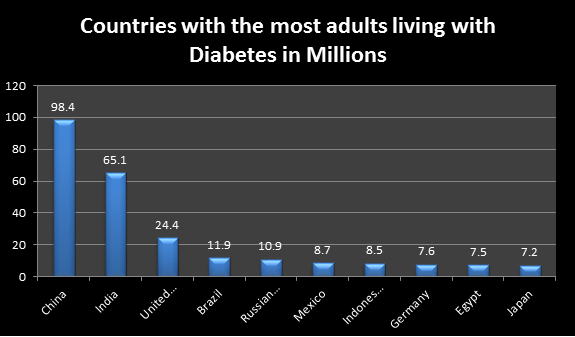
About Venue:
Melbourne is Victoria’s megalopolis and the employment, managerial, ethnic and restoration center of the state. Melbourne was the initial metropolis following the 1901 Federation of Australia and of the south-eastern part of mainland Australia. Melbourne is the majority congested megalopolis in the Australian state of Victoria, and the next majority populous city in Australia and Oceania. The name "Melbourne" cite to the region of built-up stockpile (as well as Census statistical division) spanning 9,900 km2 (3,800 sq. mi) which comprise the wider metropolitan region. Melbourne paces extremely in literacy, amusement, medical care, research and evolution, touristy and physical activities making it the potentially sustainable megalopolis.
The foremost commuter airport helping the metropolis and the state. Melbourne is next strenuous in Australia, and the Port of Melbourne is Australia's busiest seaport for containerised and general cargo.
Why to Attend?
Diabetes Meet 2018 is an opportunity to review the current trends in diabetes and endocrinology care and treatment and supports research in all aspects of diabetes and endocrinology. To allocate advance researches, developments, technology Challenges and improvement, Alternative therapies this meeting forms an excellent learning. This meeting also invites medical and health care professionals of all levels of experience to participate in an area of career and education growth that is not easily found within the structure of the workplace.
Target Audience:
- Academic researcher
- Endocrinologists
- Diabetologist's
- Medical colleges
- Training Institute
- Endocrinology societies and associations
- Diabetes Societies & Association
- Medical & Pharmacy Companies
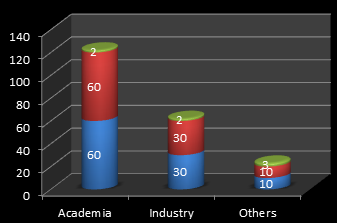
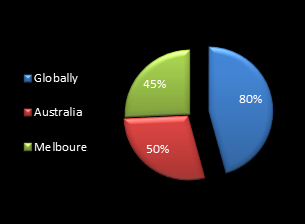
Members Associated with diabetes and endocrinology research
Societies Associated with Diabetes Care:
- Endocrine Society Australia
- Australia Diabetes Society
- European Society of Endocrinology
- Egyptian Association of Endocrinology, Diabetes, And Atherosclerosis
- The American Association of Clinical Endocrinology
- American Diabetes Association
- Association of British Clinical Diabetologist
- British Association of Endocrine and Thyroid Surgeons
- British Society for Neuroendocrinology
- British Society for Paediatric Endocrinology and Diabetes
- International Neuroendocrine Federation
- International Society of Endocrinology
- International Society of Psychoneuroendocrinology
- Panhellenic Association of Endocrinologists
- Royal Society of Medicine Endocrinology and Diabetes Section
- Spanish Society of Endocrinology and Nutrition.
List of Universities and Research Institutes Associated with Diabetes and Endocrinology
- Endocrine Society Australia
- Australia Diabetes Society
- European Society of Endocrinology
- Egyptian Association of Endocrinology, Diabetes, And Atherosclerosis
- The American Association of Clinical Endocrinology
- American Diabetes Association
- Association of British Clinical Diabetologist
- British Association of Endocrine and Thyroid Surgeons
- British Society for Neuroendocrinology
- British Society for Paediatric Endocrinology and Diabetes
- International Neuroendocrine Federation
- International Society of Endocrinology
- International Society of Psychoneuroendocrinology
- Panhellenic Association of Endocrinologists
- Royal Society of Medicine Endocrinology and Diabetes Section
- Spanish Society of Endocrinology and Nutrition.
Market Growth of in the Last And Upcoming Ten:
With the alarming increase in the prevalence of various hormone-related medical conditions, such as hypogonadism, diabetes, hyperthyroidism, and hypothyroidism, the global market for endocrinology drugs market has been witnessing a remarkable upsurge in its overall size and valuation. Since the incidence rate of diabetes is exceptionally high across the world, fueled by an unhealthy diet and the reducing involvement of consumers in physical activities, the global market is likely to remain to experience a high-paced rise in the years to come. The endocrinology drugs market in the Americas is expected to reach USD 41 billion by 2020, growing at a CAGR of over 6%.
The endocrinology drugs market in EMEA will exceed USD 16 billion by 2020, growing at a CAGR of over 6%. The endocrinology drugs market in APAC is expected to exceed USD 14 billion by 2020, growing at a CAGR of over 7%.key suppliers Novo Nordisk, Sanofi, Merck, Eli Lilly, AstraZeneca and AbbVie
Due to the high prevalence of diabetes, the demand for diabetes drugs is higher than other products. Researchers expect this trend to remain so over the next few years, resulting in the high growth rate of the diabetes drug segment. The introduction of novel drug therapies and the presence of robust product pipelines in this market for the treatment of the both types of diabetes mellitus are likely to add significantly to the rise of this segment in the years to come.
Conference Highlights
- Diabetes and its Treatment
- Diabetes Complications
- Diabetic Eye Disease (Diabetic Retinopathy)
- Diabetic Kidney Disease (Diabetic Nephropathy)
- Clinical Diabetes and Diagnostic Approaches
- Diabetes Management
- Advanced Technologies & Treatments for Diabetes
- Genetics of Diabetes
- Diabetes Oral Medications/Anti-Diabetic Medications
- Emerging Focus in Diabetes Research
- Endocrinology: Disorders & Treatment
- Endocrine complications
- Endocrinology Research and Development
- Endocrinology and Metabolic Syndrome
- Cardiovascular Disorders
- Endocrine and Metabolic Syndrome Disorders
- Metabolic Responses and Nutrition
- Treatment & Management Of Metabolic Syndrome
- Hypertension
- Pulmonary Hypertension
- Gestational hypertension
- Hypertension and Diabetes
- Hypertension & Stroke
- Hypertensive Heart disease
- Diagnosis and Pathophysiology of Hypertension
To share your views and research, please click here to register for the Conference.
To Collaborate Scientific Professionals around the World
| Conference Date | July 30-31, 2018 | ||
| Sponsors & Exhibitors |
|
||
| Speaker Opportunity Closed | Day 1 | Day 2 | |
| Poster Opportunity Closed | Click Here to View | ||
Useful Links
Special Issues
All accepted abstracts will be published in respective Our International Journals.
- Journal of Diabetes & Metabolism
- Journal of Diabetic Complications & Medicine
- Endocrinology & Metabolic Syndrome
Abstracts will be provided with Digital Object Identifier by















